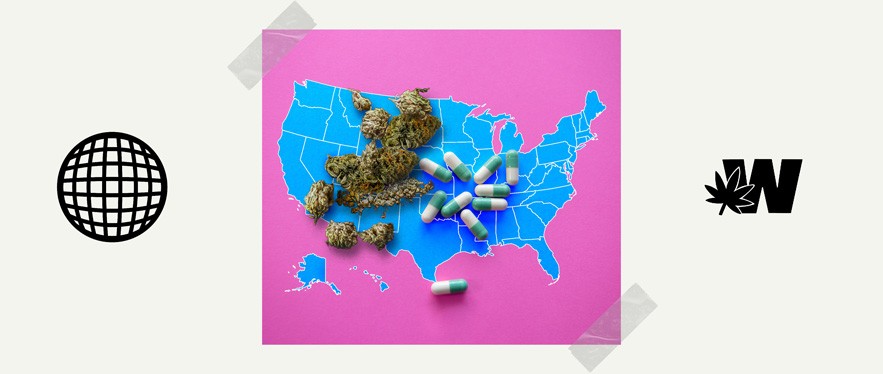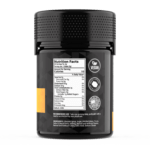
States Where Medical Marijuana Use is Legal: A Comprehensive Guide
- Understanding Medical Marijuana Laws
- States Allowing Legal Medical Marijuana Use Only
- Benefits and Concerns of Medical Marijuana Legalization
- Application and Registration Process
- Overview of Allowed Medical Marijuana Forms
- Legal Rights and Protections for Medical Marijuana Patients
- Trends and Future of Medical Marijuana Legalization
- Conclusion
In this comprehensive guide, we will delve into the intricate landscape of medical marijuana legalization across the United States. Our exploration will encompass a detailed examination of states that exclusively permit medical marijuana use. Whether you’re seeking specific information about medical marijuana access or looking to gain a broader understanding of the legalities involved, this guide will serve as your roadmap.
This post is intended as information and for general knowledge only. It is not a substitute for medical advice, diagnosis, or treatment. It is recommended that you talk to a healthcare professional about this before introducing cannabinoids into your daily routine (especially if you have been diagnosed with any medical conditions or are under any medication). It is not recommended to drive or operate any machinery when using cannabis- or hemp-derived products. Use responsibly!
Understanding Medical Marijuana Laws
What is Medical Marijuana
Medical marijuana, also known as medical cannabis, refers to the use of the marijuana plant or its chemical compounds for therapeutic purposes. It stands apart from recreational marijuana due to its specific application in treating medical conditions. This distinction is essential in the context of marijuana law, which often differentiates between medical and recreational use.
Chemical Compounds of Interest THC and CBD
Two primary chemical compounds found in the cannabis plant, tetrahydrocannabinol (THC) and cannabidiol (CBD), play pivotal roles in medical marijuana’s effects. THC is associated with psychoactive effects, while CBD offers potential therapeutic benefits without the “high” associated with THC. Both compounds have been extensively studied for their potential medical applications.
Benefits and Efficacy of Medical Marijuana
Numerous medical conditions find relief through medical marijuana. Chronic pain, cancer-related symptoms, epilepsy, and neurological disorders are among the conditions commonly treated with medical cannabis. Scientific research continues to shed light on the potential benefits, while patient testimonials highlight real-world successes.
Federal vs State Regulations
The United States experiences a dichotomy in its approach to marijuana. While many states have legalized medical marijuana, it remains classified as a Schedule I substance under federal law. This classification hampers research and policy implementation, creating incongruities between state and federal marijuana laws.
States Allowing Legal Medical Marijuana Use Only
Comprehensive List of States

As of now, a number of states have legalized medical marijuana use exclusively, barring recreational use. States like New York, North Carolina, New Mexico, South Dakota, and West Virginia fall into this category. While some states have embraced broader recreational use, these states prioritize medical cannabis programs.
Patient Qualification and Eligibility
Eligibility for medical marijuana use hinges on medical conditions such as cancer, chronic pain, epilepsy, and more. Registered healthcare professionals play a critical role in recommending marijuana for patients based on their medical needs. Age restrictions apply, and parental consent is necessary for minor patients.
Possession Limits and Cultivation Regulations
To ensure responsible use, states impose possession limits on medical marijuana. These limits define the maximum allowable amounts for patients and caregivers. In some states, patients are even permitted to cultivate their own medicine, subject to regulations on location and plant counts.
Available Forms of Medical Marijuana
Medical cannabis comes in various forms, catering to different consumption preferences and medical conditions. Smoking, vaping, edibles, tinctures, and topicals offer diverse options for patients. Whether seeking CBD-dominant or THC-dominant products, patients have choices to align with their treatment goals.
Access Points for Medical Marijuana
Dispensaries are key access points for medical marijuana products. These establishments adhere to specific regulations, ensuring patient safety and product quality. Caregivers also facilitate patient access, and some states allow home cultivation for personal medical use.
Benefits and Concerns of Medical Marijuana Legalization
Positive Impacts on Patient Well-being
The positive impacts of medical marijuana on patient well-being are evident. Effective pain management, symptom alleviation, and improved quality of life are some of the outcomes. Case studies provide tangible examples of successful medical marijuana treatments.
Economic Benefits for States
States that have embraced medical marijuana programs reap economic benefits. Tax revenues surge, while the marijuana industry generates jobs. Funding allocation to public services, education, and healthcare gains traction.
Potential Drawbacks and Concerns
While medical marijuana brings significant benefits, concerns persist. Risks of misuse, dependency, and cognitive impairment are important to address. Road safety and workplace issues need careful consideration.
Ongoing Research and Medical Community Perspectives
Ongoing research explores additional medical applications of cannabis. Medical professionals contribute perspectives grounded in evidence-based use, ensuring patient safety and treatment efficacy.
Application and Registration Process
Steps for Obtaining a Medical Marijuana Card
Acquiring a medical marijuana card involves researching requirements, connecting with registered healthcare professionals, and completing application forms. The process ensures that patients meet eligibility criteria and possess the necessary documentation.
Required Documentation
Patients must gather medical records and relevant documentation of their medical condition. Proof of residency, identification, and payment of application fees are crucial components of the process.
Role of Healthcare Professionals
Healthcare professionals assess patient eligibility and medical need for medical marijuana. Open communication between patients and physicians is vital to ensure informed decisions.
Processing Time and Card Issuance
The processing time for applications varies, with temporary cards often provided to grant access during the evaluation period. Reapplication processes exist for expired or lost cards.
Overview of Allowed Medical Marijuana Forms
Different Consumption Methods
Medical marijuana consumption offers diverse methods, each with unique characteristics. Smoking, vaping, edibles, tinctures, and topicals differ in onset time, duration, and effectiveness.
CBD and THC-Dominant Products
CBD-dominant and THC-dominant products cater to different therapeutic needs. CBD offers potential relief without psychoactive effects, while THC-dominant products target specific conditions requiring its effects.
Factors Influencing Consumption Choice
Patient preferences, lifestyle, and medical conditions influence consumption choices. Healthcare professionals provide guidance, ensuring patients choose appropriate forms and strains.
Legal Rights and Protections for Medical Marijuana Patients
Employment and Housing Rights
Navigating workplace policies and protections for medical marijuana patients iscrucial. Addressing conflicts between federal and state laws is essential for ensuring patient rights.
Education and Child Custody
Legal considerations regarding medical marijuana on school campuses and its impact on child custody agreements require thoughtful balancing of patient rights and child welfare concerns.
Traveling with Medical Marijuana
Inter-state travel with medical marijuana involves understanding reciprocity agreements and complying with destination state laws to avoid legal issues.
Trends and Future of Medical Marijuana Legalization
Potential Expansion of Medical Marijuana Programs
Predictions foresee an expansion of medical marijuana programs, driven by increasing awareness and shifting attitudes towards cannabis.
Public Opinion and Legalization Efforts
Changing public perceptions and the role of advocacy groups influence the trajectory of marijuana legalization. Public policy reflects evolving societal views.
Research and Medical Advancements
Ongoing research continually reshapes the medical marijuana landscape. Scientific discoveries drive policy decisions and medical practice, offering new avenues for treatment.
Anticipated Challenges and Developments
As medical marijuana programs expand, challenges related to regulation, public health, and safety will arise. Innovative solutions will be required to address emerging issues.
Conclusion
In this comprehensive guide, we’ve traversed the intricate terrain of states where medical marijuana is legal. By unraveling the nuanced regulations, benefits, concerns, and future trends, we’ve aimed to equip you with a comprehensive understanding of medical marijuana use in the context of state laws. Whether you’re a prospective patient, a curious observer, or a policymaker, this guide provides a valuable roadmap through the multifaceted world of medical marijuana legalization.















